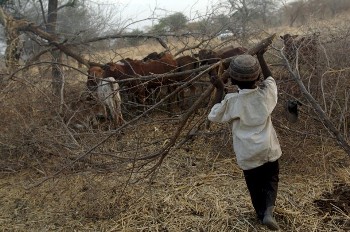South Sudan recovers looted cattle from Sudan’s Miseriya tribe
April 10, 2016 (BENTIU) – South Sudan’s officials from Northern Liech state (Unity state) said they have recovered hundreds of heads of cattle previously stolen by a neighbouring Meseiriya tribe in Sudan.

John Bol Mayak, Mayom county commissioner he received the cattle after a month of promise from Miseriya leaders.
“Yes, we have received all the cattle that were raided,” he said, adding all owners have received their missing cows.
The herds of cattle, he explained, were raided from residents of Mayom by members of the Meseiriya tribe as they searched for grazing lands north of the area.
“You know these cattle were taken last month by armed men from Miseriya tribe of Sudan. But because of our good relationship they had promised us to return all of them…” he added.
He said the Bul-Nuer, who inhabit Mayom, and Miseriya tribe have historical relationship since the Sudan’s decades of civil war between north and south, adding that local chiefs from the two sisterly countries had several agreements to allow them to interact in term of cross border trading. Most of the goods in Mayom county, he added, were imported from neighbouring Sudan despite ongoing conflicts in the country.
“Most of the traders who trade or do merchants come from Sudan especially from our brothers Miseriya and it is this relation that we think must be respected from both communities,” he said.
Last month, officials from Northern Liech state mistakenly finger pointed to the armed opposition faction allied to designated First Vice President, Riek Machar, for allegedly raiding cattle from civilians.
The opposition group however denied the charges, saying they were not responsible for the cattle theft.
Miseriya tribe lives along the common border between Sudan and South Sudan, particularly in the south-west of Southern Kordofan. The nomadic tribe uses to cross to South Sudan during dry season to look for green pastures for their animals.
Traditional local chiefs from former Unity state, in Rubkotna, Mayom and Parieng counties seasonally open their borders for the Miseriya pastoralistes during and before South Sudan succession in 2011.
However, the Miseriya tribe occasionally maintain good relationship with the indigenous communities during their stay, but cause problems when they are about to move back to Sudan.
(ST)
